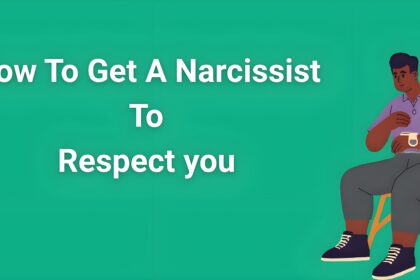Best way to deal with a narcissist? The strategy that wins – after working with over 5,000 survivors through NarcissismExposed.com as a Certified Narcissistic Abuse Specialist, I can tell you that what you’re about to discover will either set you free from their manipulation or completely transform how you navigate these toxic relationships. The strategy that consistently wins isn’t about changing them—it’s about strategically protecting yourself while maintaining your power and sanity.
- Why Traditional Approaches Fail: Best Way to Deal with a Narcissist
- The Winning Strategy: The Three-Pillar Approach
- Best Way to Deal with a Narcissist in Specific Situations
- Advanced Strategies: The Best Way to Deal with a Narcissist Long-Term
- Best Way to Deal with a Narcissist: The Psychology Behind Why This Strategy Works
- Common Mistakes That Undermine the Strategy
- Key Takeaways: The Best Way to Deal with a Narcissist
- Frequently Asked Questions
The winning strategy combines three essential elements: emotional detachment, strategic boundary enforcement, and systematic documentation—creating an impenetrable defense system that narcissists cannot penetrate or manipulate. This isn’t about playing games or seeking revenge; it’s about creating a bulletproof approach that protects your mental health while giving you back control over your life.
Understanding the best way to deal with a narcissist requires recognizing that traditional relationship advice doesn’t work with these individuals. They don’t respond to reason, compromise, or appeals to empathy because they lack the neurological capacity for genuine emotional connection. What does work is a systematic approach that leverages their predictable patterns against them while keeping you safe.
This strategy has helped thousands of survivors regain their power, protect their children, maintain necessary relationships, and rebuild their lives without falling victim to further manipulation. The key is understanding that winning doesn’t mean defeating them—it means rendering their tactics ineffective against you.
Why Traditional Approaches Fail: Best Way to Deal with a Narcissist
Before we explore the best way to deal with a narcissist that actually works, it’s crucial to understand why conventional relationship strategies not only fail but often make the situation worse. Narcissists operate from a fundamentally different psychological framework that makes normal human interaction impossible.
Traditional approaches fail because they assume the narcissist has the capacity for:
Genuine Empathy: Most relationship advice assumes both parties can understand and care about each other’s feelings. Narcissists lack the neurological capacity for emotional empathy, making appeals to their compassion pointless and often counterproductive.
Good Faith Communication: Standard conflict resolution techniques assume both parties want to reach mutually beneficial solutions. Narcissists communicate to win, control, and manipulate—not to understand or resolve issues.
Accountability and Growth: Healthy relationship dynamics require individuals to acknowledge mistakes and work toward improvement. Narcissists are psychologically incapable of genuine accountability due to their fragile ego structure.
Reciprocal Respect: Normal relationships function on mutual respect and consideration. Narcissists view relationships as zero-sum games where someone must dominate and someone must submit.
Emotional Regulation: Typical relationship advice assumes people can manage their emotions appropriately. Narcissists use emotional outbursts, guilt, and manipulation as strategic tools rather than genuine emotional expressions.
Research published in the Journal of Personality and Social Psychology confirms that narcissistic individuals show significantly different brain activity patterns in areas responsible for empathy, emotional regulation, and social cooperation. This means they’re literally incapable of engaging in the healthy relationship behaviors that traditional advice assumes.
Common failed strategies include:
Setting Boundaries Through Explanation: Explaining why you need boundaries gives narcissists information to manipulate and ways to argue against your limits.
Appealing to Their Better Nature: Assuming they have genuine care for your wellbeing that can be activated through the right approach.
Compromise and Negotiation: Trying to find middle ground with someone who views every interaction as a competition to be won.
Emotional Honesty: Sharing your feelings and vulnerabilities, which narcissists collect as weapons to use against you later.
Hoping for Change: Waiting for them to develop empathy, accountability, or genuine love that they’re neurologically incapable of experiencing.
The Winning Strategy: The Three-Pillar Approach
The best way to deal with a narcissist that consistently wins is built on three fundamental pillars that create an impenetrable defense system against their manipulation tactics. This strategy has been tested with thousands of survivors and refined based on what actually works in real-world situations.
Pillar 1: Emotional Detachment and Gray Rock Method
The first pillar involves becoming emotionally uninteresting to the narcissist while maintaining your inner emotional life. This technique, known as the “Gray Rock Method,” makes you such a boring target that the narcissist loses interest in trying to manipulate you.
Emotional detachment strategies include:
Neutral Responses: Respond to their provocations with emotionally flat, factual statements. Instead of “You’re hurting my feelings,” try “I understand you have a different perspective.”
Boring Conversation: Limit discussions to mundane, practical topics. Avoid sharing personal information, emotional reactions, or opinions they can use against you.
Minimal Reactions: Don’t provide the emotional drama they crave. Whether they’re love-bombing or raging, maintain the same calm, disinterested demeanor.
Strategic Unavailability: Become less available for their drama without obvious avoidance. Be busy with work, hobbies, or other commitments that don’t involve them.
Information Diet: Stop sharing details about your life, plans, relationships, or feelings. Every piece of information you share becomes potential ammunition.
One survivor shared with me: “When I stopped reacting to his provocations and became ‘boring,’ he gradually shifted his attention to other people who would give him the emotional responses he needed. It was like watching a predator lose interest in prey that wasn’t fun to hunt anymore.”
The key to successful emotional detachment is maintaining your emotional life internally while presenting a neutral exterior. This isn’t about becoming emotionally numb—it’s about strategic emotional protection.
Pillar 2: Strategic Boundary Enforcement
The second pillar involves implementing boundaries that are unambiguous, non-negotiable, and enforceable without requiring the narcissist’s cooperation. Traditional boundary setting often fails because it relies on the other person respecting your limits, which narcissists cannot do.
Effective boundary strategies include:
Behavioral Boundaries: Focus on what you will and won’t do rather than trying to control their behavior. Instead of “Don’t yell at me,” use “I will leave the room if voices are raised.”
Consequence-Based Enforcement: Every boundary must have a consequence you can implement immediately without their permission. “If you call me names, I will hang up the phone.”
No JADE (Justify, Argue, Defend, Explain): Don’t explain your boundaries or justify why you need them. Simply state the boundary and enforce the consequence when it’s crossed.
Document Violations: Keep records of boundary violations, especially if children or legal issues are involved. This documentation may be crucial for future protection.
Consistent Enforcement: Enforce boundaries every single time they’re crossed, regardless of their manipulation tactics, fake emergencies, or emotional blackmail.
Examples of strategic boundaries:
Communication Boundaries: “I will only discuss custody matters via email. Phone calls are for emergencies only.”
Time Boundaries: “I am available for co-parenting discussions on Sunday evenings from 6-7 PM. Other times are not available.”
Topic Boundaries: “I will not discuss our past relationship. If you bring it up, I will end the conversation.”
Emotional Boundaries: “I will not respond to guilt trips, threats, or emotional manipulation. These tactics will result in immediate communication termination.”
The power of strategic boundaries lies in their focus on your behavior rather than trying to control theirs. You can’t make a narcissist respect your boundaries, but you can make their boundary violations costly and unrewarding.
Pillar 3: Systematic Documentation and Evidence Building
The third pillar involves creating an unassailable record of their behavior patterns, which serves both as protection and as a reality check for yourself. Narcissists are masters of gaslighting, and documentation helps you maintain your sanity while building evidence for potential legal protection.
Documentation strategies include:
Detailed Interaction Records: Keep logs of all interactions, including dates, times, what was said, and any concerning behaviors. This helps you recognize patterns and provides evidence if needed.
Screenshot and Save: Preserve text messages, emails, and social media posts that show their manipulative behavior. These communications often reveal their true nature.
Witness Accounts: When possible, have interactions in the presence of witnesses who can corroborate concerning behavior.
Professional Documentation: If they behave inappropriately in professional settings, ensure incidents are reported and documented through proper channels.
Medical Records: If their behavior affects your physical or mental health, ensure healthcare providers document the connection between their actions and your symptoms.
The documentation serves multiple purposes:
Reality Validation: When they gaslight you about past events, your records provide objective proof of what actually happened.
Pattern Recognition: Systematic documentation helps you see recurring manipulation cycles and predict their behavior.
Legal Protection: If you need restraining orders, custody modifications, or other legal interventions, detailed documentation provides essential evidence.
Therapeutic Support: Mental health professionals can better help you when they have clear records of the abuse patterns you’ve experienced.
Self-Protection: Having evidence of their behavior protects you from their attempts to portray you as the problem in family, work, or social situations.
Best Way to Deal with a Narcissist in Specific Situations
Understanding the best way to deal with a narcissist requires adapting the three-pillar strategy to different relationship contexts. Each situation presents unique challenges and requires specific tactical approaches while maintaining the core defensive framework.
Co-Parenting with a Narcissistic Ex
Co-parenting represents one of the most challenging applications of the strategy because it requires ongoing contact while protecting both yourself and your children. The narcissist often uses children as weapons and leverage, making strategic protection essential.
Effective co-parenting strategies include:
Parallel Parenting: Minimize direct communication by using parallel parenting approaches where each parent manages their own relationship with the children without trying to coordinate closely.
Business-Like Communication: Treat all interactions like professional business communications—formal, factual, and focused solely on the children’s needs.
Structured Exchanges: Use neutral locations for child exchanges and consider using third parties or supervised exchange programs if necessary.
Child Protection Protocols: Teach children age-appropriate strategies for dealing with manipulation while avoiding putting them in the middle of adult conflicts.
Professional Support: Work with therapists who understand narcissistic abuse to help children process their experiences and develop healthy coping strategies.
One parent shared: “When I stopped trying to co-parent and started parallel parenting, everything changed. I focused on being the best parent I could be during my time and stopped trying to control or influence what happened at his house. The kids adapted much better when I stopped creating drama about his parenting choices.”
Dealing with Narcissistic Family Members
Family relationships often involve complex dynamics where complete no-contact isn’t possible or desired. The strategy must account for family gatherings, shared responsibilities, and extended family pressure to maintain relationships.
Family-specific strategies include:
Limited Contact Protocols: Establish clear parameters for when and how you’ll interact with the narcissistic family member.
Buffer Strategies: Use other family members as buffers during necessary interactions, avoiding one-on-one situations when possible.
Topic Limitation: Restrict conversations to safe, neutral topics and refuse to engage in discussions about personal matters, relationships, or controversial subjects.
Exit Strategies: Have clear plans for leaving family gatherings if the narcissist becomes abusive or manipulative.
Family Education: When appropriate, educate supportive family members about narcissistic behavior patterns so they can provide better support and understanding.
Workplace Narcissistic Situations
Professional environments require particularly careful navigation because your livelihood may depend on maintaining working relationships while protecting yourself from abuse. The strategy must account for professional hierarchies, HR policies, and career implications.
Workplace strategies include:
Professional Documentation: Keep detailed records of all interactions, especially those involving project responsibilities, deadlines, and professional communications.
Witness Cultivation: Ensure important conversations happen in the presence of witnesses or via email where there’s a paper trail.
HR Engagement: When appropriate, involve human resources in addressing inappropriate behavior while maintaining your professional reputation.
Alliance Building: Develop relationships with colleagues who can provide support and corroboration of problematic behavior patterns.
Career Protection: Focus on your own professional development and performance while avoiding getting drawn into workplace drama or politics.
Advanced Strategies: The Best Way to Deal with a Narcissist Long-Term
Once you’ve mastered the basic three-pillar approach, advanced strategies help you maintain your protection while building a life that’s less vulnerable to narcissistic manipulation. These long-term approaches focus on personal empowerment and systemic change.
Building Narcissist-Resistant Life Systems
The best way to deal with a narcissist long-term involves creating life systems that are naturally resistant to their manipulation tactics. This means building financial independence, emotional support networks, and personal strength that make you less attractive as a target.
Resistance-building strategies include:
Financial Independence: Develop your own income sources, credit, and financial security that can’t be controlled or manipulated by the narcissist.
Support Network Diversification: Build relationships with multiple people who understand your situation and can provide emotional support and reality checks.
Skill Development: Learn new skills that increase your confidence and independence, making you less dependent on the narcissist for any aspect of your life.
Legal Knowledge: Understand your rights and legal options in various scenarios, including harassment, custody issues, and workplace protection.
Therapeutic Support: Work with trauma-informed therapists who understand narcissistic abuse and can help you process your experiences while building resilience.
Recognizing and Countering Manipulation Tactics
Advanced application of the best way to deal with a narcissist involves recognizing specific manipulation tactics and having prepared responses that render them ineffective. This proactive approach prevents manipulation before it can destabilize you.
Common tactics and effective counters include:
Love-Bombing: When they suddenly become affectionate and attentive, maintain your boundaries and remember that this is temporary manipulation designed to regain control.
Triangulation: When they try to involve third parties in your conflicts, refuse to engage with the drama and maintain direct communication only when necessary.
Gaslighting: When they deny or minimize past events, rely on your documentation and trusted friends for reality checks rather than trying to convince them.
Emotional Blackmail: When they threaten self-harm or use guilt to manipulate you, contact appropriate crisis resources rather than taking responsibility for their emotional state.
Hoovering: When they attempt to re-enter your life after periods of absence, maintain your boundaries and remember why you implemented protection strategies in the first place.
Teaching Others the Winning Strategy
Part of the best way to deal with a narcissist involves helping others in your circle understand these dynamics and protect themselves. This creates a network of people who can’t be easily manipulated to work against you.
Education strategies include:
Sharing Resources: Provide friends and family with information about narcissistic behavior patterns so they can recognize manipulation attempts.
Modeling Boundaries: Demonstrate healthy boundary setting in your own life so others can learn from your example.
Supporting Other Survivors: Connect with other people who’ve dealt with narcissistic abuse to share strategies and provide mutual support.
Professional Development: Consider training in narcissistic abuse recognition if you work in helping professions where you might encounter these dynamics.
Community Building: Create or join groups focused on narcissistic abuse recovery and education to build broader awareness and support systems.
Best Way to Deal with a Narcissist: The Psychology Behind Why This Strategy Works
Understanding why the best way to deal with a narcissist involves these specific strategies requires examining the psychological principles that make them effective. This knowledge helps you implement them more effectively and understand why other approaches fail.
Narcissistic Supply Disruption
The three-pillar strategy works because it disrupts the narcissist’s primary psychological need: narcissistic supply. This supply comes from the attention, emotional reactions, and control they gain from their targets. When you become an unreliable source of supply, they naturally lose interest and move on to easier targets.
Supply disruption occurs through:
Emotional Unavailability: Gray rock techniques make you boring and unpredictable as a source of emotional drama.
Boundary Enforcement: Consistent consequences make manipulation attempts costly and unrewarding.
Documentation: Recording their behavior removes their ability to gaslight and control the narrative.
Independence Building: Reducing your dependence on them eliminates their leverage over your choices and reactions.
Control and Predictability Removal
Narcissists require predictable targets they can control and manipulate. The winning strategy removes both predictability and control by making your responses strategic rather than emotional.
Control removal strategies include:
Refusing to JADE: Not explaining your boundaries removes their ability to argue against them or find weaknesses.
Consequence Focus: Focusing on your own behavior rather than trying to change theirs eliminates their ability to manipulate your expectations.
Information Limitation: Reducing their access to information about your life removes their ability to use it against you.
Support System Activation: Having multiple sources of support and validation makes you less dependent on their approval or opinion.
Cognitive Dissonance Creation
The strategy creates cognitive dissonance for the narcissist by making their usual tactics ineffective. This psychological discomfort motivates them to seek easier targets rather than continue trying to manipulate you.
Dissonance creation occurs through:
Unexpected Responses: Responding differently than they expect disrupts their manipulation scripts.
Consistent Boundaries: Maintaining the same standards regardless of their tactics shows them that manipulation doesn’t work.
Emotional Detachment: Not providing the emotional reactions they crave makes their behavior feel unrewarding.
Independence Demonstration: Showing that you can be happy and successful without them challenges their belief that they’re essential to your wellbeing.
Common Mistakes That Undermine the Strategy
Even with the best way to deal with a narcissist clearly outlined, many people make predictable mistakes that undermine their effectiveness and leave them vulnerable to continued manipulation. Understanding these pitfalls helps you avoid them and maintain your protective strategies.
The Empathy Trap
One of the biggest mistakes is feeling sorry for the narcissist and relaxing your boundaries when they appear vulnerable or distressed. This natural empathy response is exactly what they’re counting on to regain control and continue their manipulation.
Empathy trap indicators include:
Believing Their Sob Stories: Accepting their explanations about why they behaved badly without looking at the pattern of behavior.
Hoping for Change: Thinking that your consistency and boundaries will eventually help them become a better person.
Guilt About Setting Boundaries: Feeling mean or cruel for protecting yourself from their manipulation.
Rescue Fantasies: Believing that you can help them heal or change if you just love them enough or use the right approach.
The reality is that narcissists are skilled at appearing vulnerable when it serves their purposes. Maintaining your boundaries during these moments is crucial for your protection and actually more helpful to them than enabling their manipulation.
The Explanation Addiction
Many people struggle with the urge to explain, justify, or defend their boundaries and choices. This JADE (Justify, Argue, Defend, Explain) response gives narcissists ammunition to manipulate and argue against your protection strategies.
Explanation addiction manifests as:
Over-Explaining Boundaries: Providing detailed reasons why you need specific limits, which gives them information to argue against.
Defending Your Choices: Feeling compelled to justify your decisions to someone who doesn’t respect your autonomy.
Seeking Understanding: Hoping that if you explain clearly enough, they’ll respect your boundaries and stop manipulating you.
Responding to Provocations: Engaging in arguments or discussions designed to make you defend your position or explain your behavior.
The most effective response is to state your boundary once and then enforce it consistently without explanation or justification.
The Consistency Failure
The strategy only works when implemented consistently over time. Many people start strong but gradually relax their boundaries, returning to old patterns that make them vulnerable to renewed manipulation.
Consistency failures include:
Boundary Erosion: Gradually allowing small violations that eventually lead to complete boundary breakdown.
Emotional Decision Making: Making choices based on temporary emotions rather than your long-term protection strategy.
Holiday or Special Event Exceptions: Relaxing boundaries during special occasions, which the narcissist learns to exploit.
Flying Monkey Pressure: Allowing family members or friends to pressure you into relaxing your boundaries for family harmony.
Crisis Capitulation: Abandoning your strategy during manufactured emergencies or crises designed to bypass your defenses.
Key Takeaways: The Best Way to Deal with a Narcissist
The best way to deal with a narcissist? The strategy that wins consistently combines emotional detachment, strategic boundary enforcement, and systematic documentation to create an impenetrable defense system that protects your mental health while rendering their manipulation tactics ineffective.
Remember these crucial principles:
- Traditional relationship advice doesn’t work because narcissists lack the neurological capacity for empathy, accountability, and genuine connection
- The three-pillar strategy works by disrupting their narcissistic supply, removing your predictability, and creating cognitive dissonance that motivates them to seek easier targets
- Emotional detachment through gray rock method makes you boring and unrewarding as a manipulation target
- Strategic boundaries focus on your behavior rather than trying to control theirs, with consistent consequences you can enforce independently
- Systematic documentation provides reality checks, pattern recognition, and potential legal protection
- Consistency is crucial – the strategy only works when implemented without exceptions or emotional decision-making
- Avoid common mistakes like the empathy trap, explanation addiction, and consistency failures that undermine your protection
The winning strategy requires:
- Treating interactions like business rather than personal relationships
- Focusing on your own behavior and responses rather than trying to change them
- Building independence and support systems that reduce your vulnerability
- Understanding that winning means protecting yourself, not defeating them
- Maintaining your approach regardless of their manipulation tactics or apparent changes
Long-term success involves:
- Building narcissist-resistant life systems that reduce your attractiveness as a target
- Developing advanced skills for recognizing and countering specific manipulation tactics
- Creating support networks that understand these dynamics and can’t be easily manipulated
- Educating others about narcissistic behavior patterns to protect broader communities
- Focusing on your own healing and growth rather than their potential for change
Understanding the best way to deal with a narcissist isn’t about becoming manipulative yourself—it’s about protecting your mental health, maintaining your values, and building a life that’s resistant to their tactics. When someone searches for “the strategy that wins,” they’re looking for hope that they can regain control and protect themselves from ongoing manipulation. This comprehensive approach provides that hope while giving them practical tools for implementation.
The strategy works because it’s based on understanding narcissistic psychology and leveraging their predictable patterns against them while maintaining your own integrity and emotional health. Success means they lose interest in targeting you and move on to easier sources of supply, leaving you free to build the healthy, authentic life you deserve.
Frequently Asked Questions
Is it possible to have a normal relationship with a narcissist if I use this strategy?
No, the strategy is designed to protect you from manipulation, not to create genuine relationship improvement. Narcissists lack the neurological capacity for authentic emotional connection, empathy, and mutual respect required for healthy relationships. The best outcome is that they lose interest in targeting you and either maintain superficial, business-like contact or move on to other sources of supply. The strategy helps you interact safely when contact is necessary (custody, work, family), but it cannot transform a narcissist into a healthy relationship partner. Your goal should be protection and peace, not relationship improvement.
How long does it take for the strategy to work and for them to stop targeting me?
The timeline varies significantly depending on factors like the severity of their narcissistic traits, availability of other supply sources, and your consistency in implementing the strategy. Some people see results within weeks as the narcissist becomes bored with their lack of emotional reaction, while others may need months of consistent application. The key is maintaining the strategy regardless of their escalation attempts or apparent changes. Most narcissists will test your boundaries more intensely before giving up, so expect an initial increase in manipulation attempts. Consistency is crucial—any return to old patterns resets the timeline and teaches them that persistence eventually works.
What if the narcissist escalates their behavior or becomes dangerous when I implement these strategies?
Some narcissists do escalate when they realize their usual tactics aren’t working, which is why safety planning is essential before implementing the strategy. If you fear violence or extreme retaliation, work with domestic violence professionals to develop a safety plan before changing your approach. Document all escalation attempts and don’t hesitate to involve law enforcement if threats are made. The strategy includes systematic documentation specifically to provide evidence for legal protection if needed. Remember that escalation often indicates the strategy is working—they’re becoming desperate because their manipulation isn’t effective. However, your safety is always the top priority, and professional support is crucial during this phase.
Can I use this strategy if I still have feelings for the narcissist?
Yes, but it requires emotional discipline and often professional support to maintain. Having feelings doesn’t invalidate the need for protection—it actually makes the strategy more important because emotional attachment makes you more vulnerable to manipulation. Consider working with a therapist who understands narcissistic abuse to help process your feelings while maintaining your boundaries. Remember that your feelings are based on the false self they presented, not their true nature. The strategy works regardless of your emotional state, but having feelings may make it harder to maintain consistency. Focus on protecting yourself while allowing your feelings to naturally change as you experience healthier interactions with the reduced manipulation.
What if family members or friends pressure me to drop the strategy for family harmony?
Family pressure is common because others often don’t understand narcissistic dynamics and may be manipulated by the narcissist’s public persona. Don’t compromise your safety for others’ comfort or their desire to avoid conflict. Educate supportive family members about narcissistic behavior patterns when possible, but don’t feel obligated to convince everyone. Some family members may be “flying monkeys” who unknowingly enable the narcissist’s manipulation. Set boundaries with family members who pressure you to drop your protective strategies, and seek support from people who understand your situation. Remember that family members who truly care about your wellbeing will support your need for protection, not pressure you to accept abuse for their comfort.
How do I maintain the strategy when dealing with custody and child exchanges?
Custody situations require particularly careful application of the strategy because children’s wellbeing is involved. Use parallel parenting approaches that minimize direct communication while focusing on the children’s needs. Conduct exchanges in neutral, public locations when possible, and consider using third-party exchange services if direct contact is problematic. Keep all communication business-like and focused solely on the children’s schedules, needs, and activities. Document everything related to custody interactions and any concerning behavior around the children. Work with family court professionals who understand narcissistic abuse if modifications to custody arrangements become necessary. The strategy protects both you and your children by reducing conflict and manipulation opportunities.
What should I do if the narcissist tries to use mutual friends or family to gather information about me?
Information gathering through mutual connections is a common narcissistic tactic called “triangulation.” Implement an information diet with everyone in your social circle, sharing only information you’d be comfortable with the narcissist knowing. Educate trusted friends and family about this tactic so they can recognize and avoid being manipulated into providing information. Be cautious about what you share on social media, as narcissists often monitor these platforms directly or through others. If someone repeatedly shares your information despite your requests for privacy, they may not be a safe person to maintain in your support network. Focus on building relationships with people who respect your boundaries and understand your need for privacy protection.






